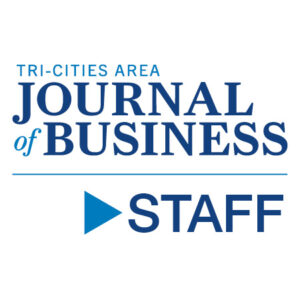
Home » Richland company must pay fine, reform hiring practices after discrimination probe
Richland company must pay fine, reform hiring practices after discrimination probe

April 22, 2025
A Richland-based agricultural company is reforming its hiring practices and paying a fine to the state Attorney General’s Office after an investigation into discriminatory employment practices and misrepresentations to local farmworkers about job opportunities.
State Attorney General Nick Brown filed a resolution April 22 with King Fuji Ranch in Benton County Superior Court in Kennewick that will end the investigation and avoid litigation.
King Fuji grows apples and wine grapes in central Washington and is operated by Michael Taggares, who also owns Tagaris Wines.
The legally-binding agreement requires King Fuji to reform its hiring practices to protect local farmworkers from being unlawfully displaced by foreign H-2A workers, adopt a nondiscrimination policy the Attorney General’s Office will review and approve, and provide training for the next five years to employees and supervisors about their rights and obligations under state civil rights and consumer protection laws.
Once approved by a judge, the agreement will become an enforceable court order.
“Employers cannot discriminate against willing, available local workers in order to abuse foreign visa programs,” Brown said in a statement. “The Attorney General’s Office will protect farmworkers in Washington state from employers that break the law.”
Growers who use the H-2A program are required to show a real labor shortage before they can bring in foreign workers, said Andrea Schmitt, an attorney with Columbia Legal Services, the legal aid organization that brought the issue of King Fuji’s alleged hiring practices to the attention of the Attorney General’s Office.
“In reality, we often see growers deceiving local farmworkers to avoid hiring them because the growers prefer H-2A workers who can’t change jobs regardless of working conditions,” she said in a statement.
The H-2A program is intended only for employers who face a shortage of laborers. Employers cannot apply for this program unless they can show that there is a shortage of U.S.-based workers in their region who are willing, qualified and able to work. It is not a free pass to hire foreign H-2A workers who may be more vulnerable and less aware of their rights than U.S.-based workers, the AG’s office said.
Between 2016-19, King Fuji represented to local farmworkers that it required three months of tree fruit experience for jobs thinning, training, pruning, and harvesting apples and wine grapes. But it communicated a different set of hiring criteria to its H-2A labor recruiter in Mexico – including that they find married men under the age of 35 and without any mention of the requirement that they have three months’ tree fruit experience, the AG’s office said.
The AG’s office asserted that hiring male H-2A workers and displacing local male and female workers constitutes sex and national origin discrimination. It also said the deceptive advertising to local workers requiring experience that was not required of H-2A workers from abroad violated the Consumer Protection Act.
Latest News Local News Agriculture Labor & Employment
KEYWORDS April 2025
Related Articles
Related Products





